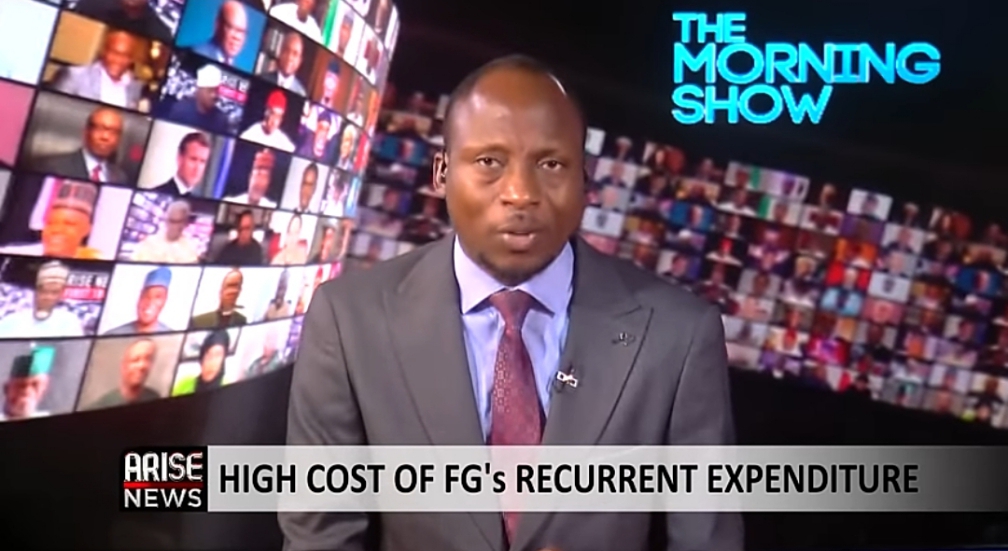Failure to Restructure Nigeria’s Economy Would Lead to Borrowing in 2025- Paul Alaje

Chief Economist and senior partner at SPM Professionals, Paul Alaje on Monday predicted that Nigeria may have to borrow to service debt in 2025 if the federal government fails to take measures to rearrange the economy.
Speaking during an interview with Arise Television, Alaje reviewed and discussed the implication of what the current minister of finance said at the national assembly who said most of the revenue had been used to service debt.
Alaje noted that to avoid future borrowings there is a need to first examine how the 2023 budget was executed to determine the 2024 budget.
He said, “You look at the debt profile today and the servicing which is the cost of debt, the current minister of finance and the coordinating minister of the economy was asked in a session of the national assembly and he responded by mentioning that 98 percent of all revenues was used to service debt. What does that mean?
“If we had a budget, because that year, 2023 we had a budget, we never envisaged that 98 percent of that budget in real terms, after subsidy has been removed after naira has been devalued, will be used to service debt.
“Recall that a minister before him, the former minister has earlier mentioned, at a time the Q1 of 2021 when he was giving the report that over a 100 percent of all revenues have been used to service debt. What is the future of our debt service?”
“I’ll tell you that by the end of 2025, if the need or care is not taken and urgent decisions made, regarding rearranging and restructuring our economy, the truth is that by 2025, we would have to borrow to service debt. Unfortunately, if we don’t depart from the norm, this may be where we will find ourselves.
“28.7 trillion is a huge amount. But do I think that we would meet up with these expectations in terms of revenue and money to be borrowed, I doubt. We need to check what happened last year to predict what will happen this year.
“Last year we projected that we were going to make nearly double what we made, but what we realized in revenue last year was only five trillion naira, less than six trillion. What we did was that we borrowed money to make provision for the shortfall.
“In fact, we would have generated less than that amount but for subsidy removal which put more money in the pocket of the federal government and the state government today.
“This year is a fresh year for the president and that means, with subsidy gone, as well as the exchange rate which means naira has been completely devalued, that should of course put more money in the pocket of the government but will this money be up to 18 trillion naira, honestly, I doubt.”
Paul Alaje also added that if the federal government continues to securitize ways and means, achieving the projected twenty-one percent, from the current twenty-eight percent, may not become a reality for the nation.
He said “I am really surprised that it is mentioned in the public space now that we want to securitize ways and means again.
“If we don’t depart from this old path and generate real money, if we don’t change and continue to securitize because the federal government in a way, owns the central bank and we can take any decision, the truth is even those earning one million naira today, that one million will be equivalent to a hundred thousand in the next three years if we continue to securitize ways and means and not allow the federal government to be more responsible.
“Collecting money from the central bank in ways and means is like drinking sugar believing that it is available because we have a sugar manufacturing plant, hoping to become fat.
“Yes, you will become fat but will also land in the hospital emergency bed. If we continue to securitize, I can tell you that twenty-one percent, from the current twenty-eight percent, may not be a reality.”
Follow us for more stories…